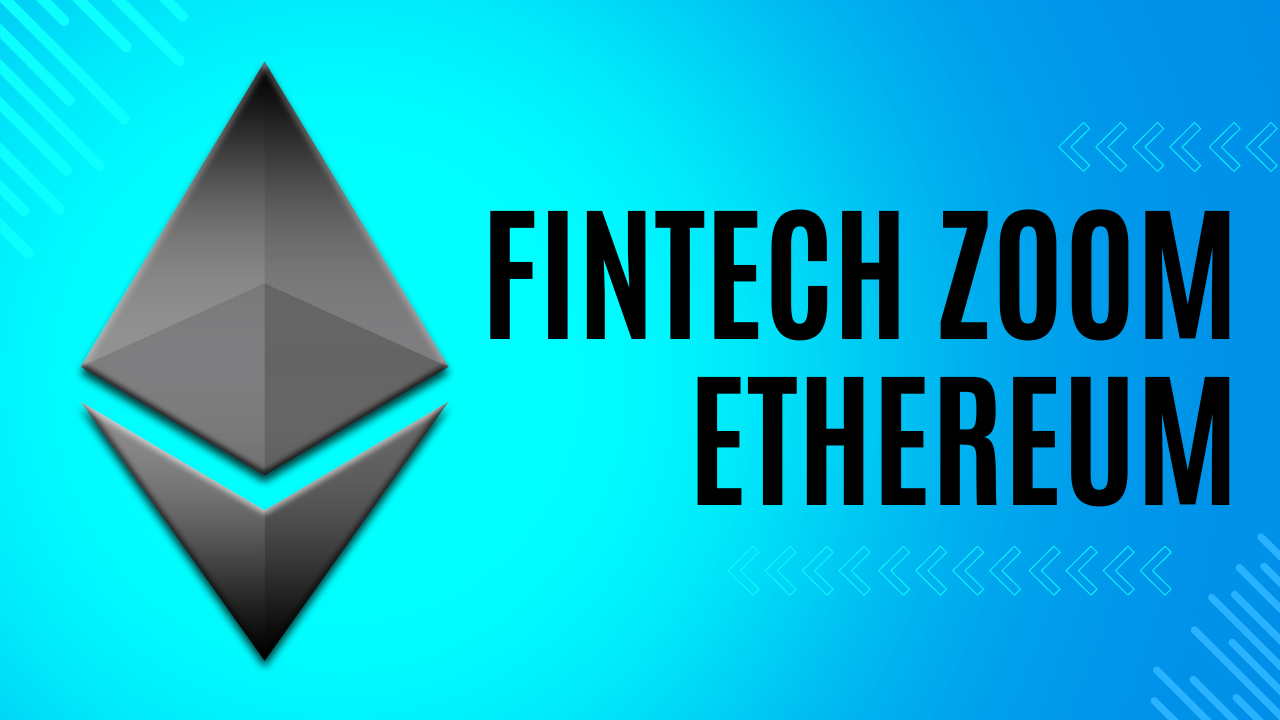Fintech Zoom Ethereum: Revolutionizing the Financial Landscape
In today’s rapidly evolving financial world, integrating technology and finance has created a powerful synergy known as Fintech. One of the most exciting developments in this realm is the combination of Fintech and Ethereum, a leading blockchain platform. This article will dive deep into the potential of this union, exploring how Fintech Zoom Ethereum is poised to transform the financial industry.
Understanding Fintech and Ethereum
What is Fintech?
Fintech, short for financial technology, represents the intersection of finance and technology. It encompasses various applications, from mobile banking and online payments to complex financial algorithms and decentralized financial systems. Fintech aims to make financial services more efficient, accessible, and user-friendly. By leveraging technology, Fintech companies are reshaping traditional financial services, offering innovative solutions that cater to the needs of modern consumers and businesses.
The Role of Ethereum in Blockchain
Ethereum is a blockchain platform that allows developers to build decentralized applications (dApps) using smart contracts. Unlike Bitcoin, which primarily serves as a digital currency, Ethereum’s blockchain is programmable, enabling many applications beyond simple transactions. Smart contracts on Ethereum are self-executing agreements with the terms of the contract directly written into code. This feature makes Ethereum a versatile platform for creating decentralized financial services, secure digital identities, and more.
The Power of Fintech Zoom Ethereum
The Synergy of Fintech and Ethereum
The combination of Fintech and Ethereum creates a powerful synergy. Fintech Zoom Ethereum refers to the fusion of these two worlds, where Fintech’s technological advancements meet the decentralized capabilities of Ethereum’s blockchain. This union has the potential to revolutionize the financial industry, providing secure, transparent, and efficient solutions that cater to the evolving needs of consumers and businesses alike.
Enhancing Financial Services
One of Fintech Zoom Ethereum’s most significant advantages is its ability to enhance financial services. By leveraging Ethereum’s blockchain technology, Fintech companies can offer decentralized financial services, such as lending, borrowing, trading, and asset management. These services are secure and transparent, ensuring that all transactions are immutable and verifiable on the blockchain.
Decentralized Finance (DeFi) Applications
What is DeFi?
Decentralized Finance, or DeFi, is one of the most promising applications of Fintech Zoom Ethereum. DeFi refers to a new financial system built on blockchain technology that operates without intermediaries like banks or financial institutions. Instead, DeFi platforms rely on smart contracts to execute financial transactions, giving users direct control over their assets.
Defi Lending and Borrowing
One of the most popular use cases of DeFi is decentralized lending and borrowing. Traditional lending requires intermediaries like banks to facilitate transactions between borrowers and lenders. However, DeFi platforms built on Ethereum allow users to lend and borrow assets directly from one another, with smart contracts enforcing the loan terms. This eliminates the need for intermediaries, reducing costs and increasing efficiency.

Defi Trading
DeFi has also revolutionized trading in the financial markets. Decentralized exchanges (DEXs) built on Ethereum allow users to trade cryptocurrencies and other digital assets without relying on centralized exchanges. These platforms operate using smart contracts, ensuring that trades are executed fairly and transparently. Moreover, DEXs give users greater control over their assets, as they do not require users to deposit funds into the exchange.
Tokenization of Assets
What is Tokenization?
Tokenization is another exciting application of Fintech Zoom Ethereum. It refers to creating digital representations of real-world assets on the blockchain, such as real estate, stocks, or commodities. These digital assets, or tokens, can be traded on blockchain platforms, providing liquidity and accessibility to traditionally illiquid assets.
Benefits of Tokenization
Tokenization offers several benefits to both investors and asset owners. For investors, tokenization provides access to a broader range of assets, as tokens can be fractionalized, allowing investors to purchase smaller portions of high-value assets. For asset owners, tokenization can increase liquidity, as tokens can be easily traded on secondary markets. Additionally, tokenization offers greater transparency, as all transactions are recorded on the blockchain.
Real-World Examples of Tokenization
Several real-world examples demonstrate the potential of tokenization. For instance, real estate developers have begun tokenizing properties, allowing investors to purchase property shares through digital tokens. Similarly, companies have tokenized equity, offering shares of their company as digital tokens on blockchain platforms. These examples highlight the versatility of tokenization and its potential to transform various industries.
Payment Systems and Smart Contracts
The Role of Ethereum in Payments
Ethereum’s blockchain technology is also transforming payment systems. Traditional payment systems often rely on intermediaries like banks or payment processors to facilitate transactions. However, Ethereum’s blockchain allows for peer-to-peer payments using smart contracts, eliminating the need for intermediaries. This reduces transaction costs and increases the speed and efficiency of payments.
Smart Contracts in Payments
Intelligent contracts play a crucial role in Ethereum-based payment systems. These self-executing contracts automatically enforce the terms of an agreement, ensuring that payments are made only when certain conditions are met. For example, a smart contract could facilitate payment only when a product is delivered, providing both parties greater security and trust in the transaction.
Decentralized Payment Solutions
Decentralized payment solutions built on Ethereum are gaining popularity in various industries. For instance, decentralized payment platforms allow users to send and receive cryptocurrency payments without relying on traditional banking systems. These platforms benefit regions with limited access to banking services, providing a secure and efficient alternative for financial transactions.
Insurance and Transparent Claims Processing
Decentralized Insurance Platforms
The insurance industry is also benefiting from Fintech Zoom Ethereum’s innovations. Decentralized insurance platforms leverage Ethereum’s blockchain to offer transparent and efficient insurance products. These platforms use smart contracts to automate the insurance process, from issuing policies to processing claims.
Transparent Claims Processing
One key advantage of decentralized insurance platforms is transparent claims processing. Traditional insurance companies often face challenges related to claim disputes and delays. However, with smart contracts, claims can be processed automatically based on predefined conditions, reducing the likelihood of disputes and ensuring timely payouts.
Real-World Applications in Insurance
Several decentralized insurance platforms have already emerged, offering products ranging from health insurance to travel insurance. These platforms give users greater control over their policies, as they can customize coverage and premiums based on their needs. Moreover, the transparency of the blockchain ensures that all transactions are recorded and verifiable, increasing trust between insurers and policyholders.
Financial Inclusion and Accessibility
Promoting Financial Inclusion
One of Fintech Zoom Ethereum’s most significant impacts is its potential to promote financial inclusion. In many parts of the world, access to financial services is limited, particularly in rural or underserved areas. However, decentralized financial platforms built on Ethereum can provide these communities with access to essential financial services, such as banking, lending, and insurance.
Empowering Underserved Communities
By removing the need for intermediaries, Fintech Zoom Ethereum empowers individuals and businesses in underserved communities to participate in the global economy. For example, decentralized lending platforms allow small businesses to access credit without relying on traditional banks. Similarly, decentralized payment platforms enable individuals to send and receive money across borders without needing expensive remittance services.
The Future of Financial Inclusion
As Fintech Zoom Ethereum continues to evolve, its potential to promote financial inclusion will only grow. With the development of more user-friendly interfaces and the expansion of blockchain infrastructure, decentralized financial services will become increasingly accessible worldwide. This will not only empower individuals and businesses but also contribute to the overall growth of the global economy.
Conclusion
Fintech Zoom Ethereum represents a powerful combination of finance and technology, potentially revolutionizing the financial industry. By leveraging Ethereum’s blockchain technology, Fintech companies can offer secure, transparent, and efficient financial services that cater to the needs of modern consumers and businesses. From decentralized finance and tokenization to payment systems and insurance, Fintech Zoom Ethereum is paving the way for a new era of financial innovation. As we look to the future, it is clear that Fintech Zoom Ethereum will play a crucial role in shaping the financial landscape, promoting financial inclusion, and driving economic growth.



